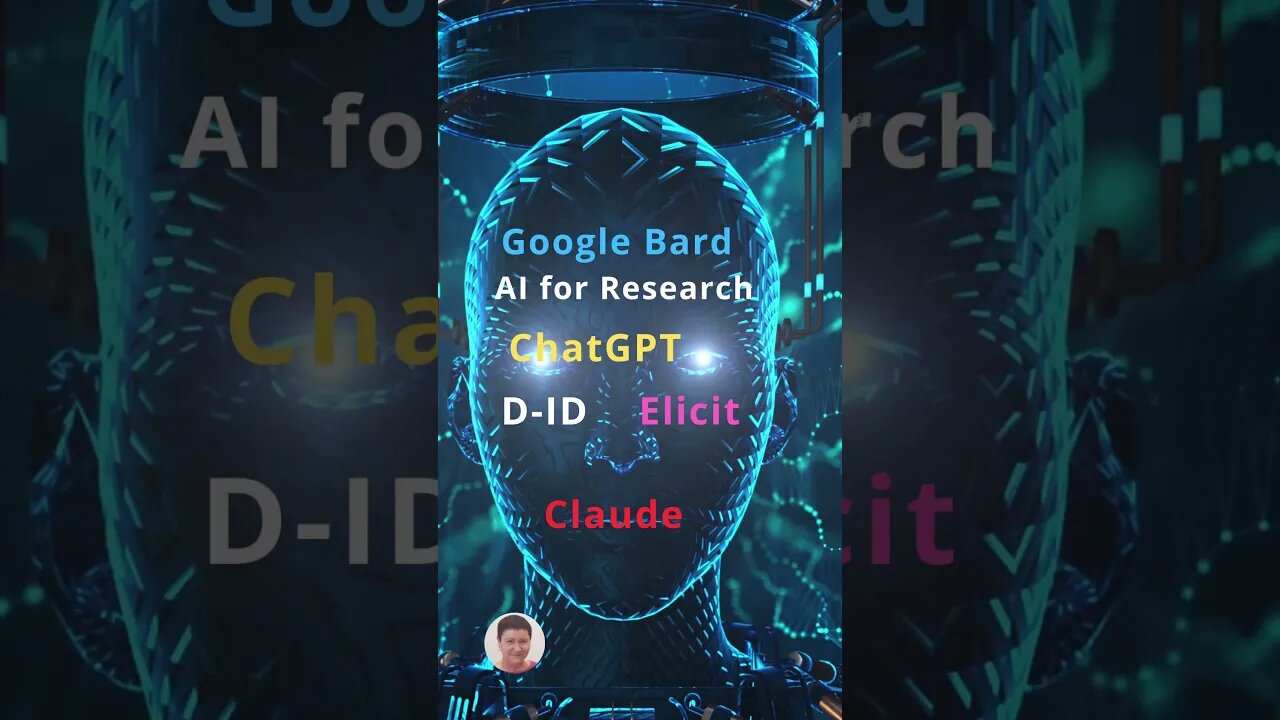Premium Only Content

AI for Research in Education
#AI #Research #airesearcher #education #instruction #Learning
Artificial intelligence (AI) is rapidly transforming the research landscape in education. AI-powered tools are being used to automate tasks, analyze data, and generate insights that would have been impossible to achieve just a few years ago. AI has the potential to revolutionize research in education. However, there are also some challenges that need to be addressed before AI can be used to its full potential.
Here are some of the ways that AI is being used in research in education today:
1. Automating tasks: AI can be used to automate many of the tedious and time-consuming tasks involved in research, such as data entry, literature reviews, and data analysis. This frees up researchers to focus on more creative and strategic work.
2. Analyzing data: AI can be used to analyze large datasets that would be too difficult or time-consuming to analyze manually. This can help researchers to identify patterns and trends that would have otherwise been overlooked.
3. Generating insights: AI can be used to generate insights from data that would be difficult or impossible for humans to identify. This can help researchers to make new discoveries and develop new theories.
Some of the benefits of using AI in research in education:
1. Increased efficiency: AI can help researchers to automate tasks, which can free up time for them to focus on more creative and strategic work.
2. Improved accuracy: AI can help researchers to analyze data more accurately and identify patterns and trends that would have otherwise been overlooked.
3. New insights: AI can help researchers to generate new insights from data that would have been difficult or impossible for humans to identify.
4. Better decision-making: AI can help researchers to make better decisions about policy, intervention, and curriculum development.
Some of the challenges of using AI in research in education:
1. Bias: AI models can be biased, which can lead to inaccurate results.
2. Interpretability: AI models can be difficult to interpret, which can make it difficult to understand why they are making the decisions they are making.
3. Privacy: AI models can collect and use a lot of data, which raises privacy concerns.
-
 1:18:44
1:18:44
Kim Iversen
4 hours agoMagnetic Pole Shift: Europe’s Blackout Is Just the Beginning | 90° Earth Flip Coming
73.2K194 -
 2:44:58
2:44:58
Laura Loomer
3 hours agoEP118: LIVE COVERAGE: Trump Celebrates 100 Days In Office At Michigan Rally
47K16 -
 3:40:42
3:40:42
Barry Cunningham
10 hours agoWATCH TRUMP RALLY LIVE: PRESIDENT TRUMP MARKS 100 DAYS IN OFFICE WITH A RALLY IN MICHIGAN
32.9K9 -
 1:32:44
1:32:44
Badlands Media
10 hours agoBadlands Media Special Coverage: President Trump's 1st 100 Days Rally
40.2K2 -
 LIVE
LIVE
RalliedLIVE
5 hours ago $0.57 earnedWarzone All Night w/ Ral
86 watching -
 49:12
49:12
Sarah Westall
2 hours agoA Globalist Agenda or Chinese Payback? Fentanyl #1 Cause of Death for People Under 49
15.5K1 -
 55:30
55:30
LFA TV
1 day ago| TRUMPET DAILY 4.29.25 7PM
15.2K -
 7:27
7:27
China Uncensored
9 hours agoChina’s DISTURBING Expansion in Africa
18.2K11 -
 1:24:27
1:24:27
Redacted News
5 hours agoELECTION SHOCK! Canada Declares War on U.S. and Trump, India going to war with Pakistan? | Redacted
138K245 -
 1:18:53
1:18:53
vivafrei
7 hours agoCanada Elected a Globalist, WEF, 3-Passport-Carrying Manchurian Candidate! And Other News! Viva Frei
85.8K136